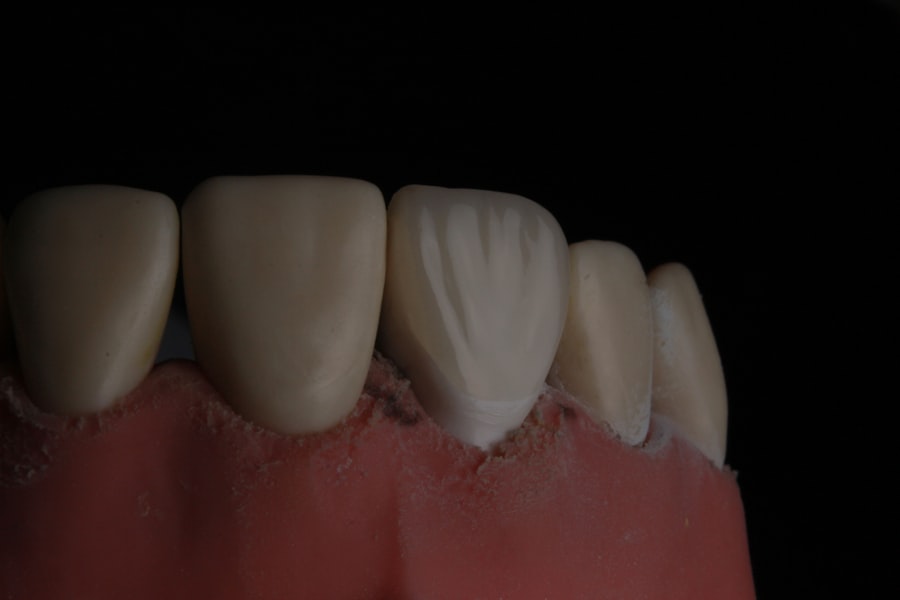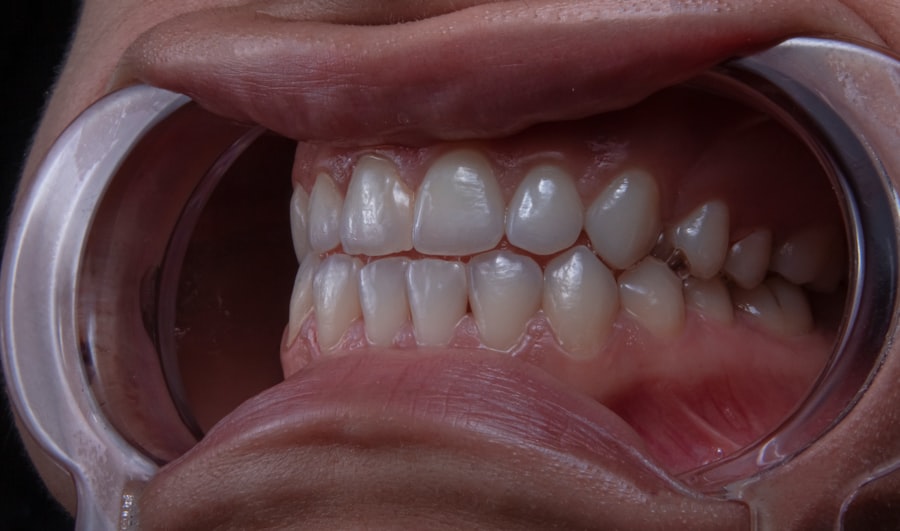In the digital age, the significance of Search Engine Optimization (SEO) for dental practices cannot be overstated. As more patients turn to the internet to find healthcare providers, having a robust online presence is essential for attracting new clients. SEO is the process of optimizing a website to rank higher in search engine results, thereby increasing visibility and driving organic traffic.
For dental practices, this means that when potential patients search for services like “family dentist near me” or “emergency dental care,” your practice appears prominently in the search results, making it more likely that they will choose your services. Moreover, effective SEO strategies can enhance the credibility of a dental practice. When a website ranks high on search engines like Google, it is often perceived as more trustworthy and authoritative.
This perception is crucial in the healthcare sector, where patients are looking for reliable and competent providers. By investing in SEO, dental practices not only improve their visibility but also build a reputation that can lead to increased patient trust and loyalty. In a competitive market, where numerous practices vie for the same clientele, having a well-optimized website can be the differentiating factor that sets one practice apart from another.
Key Takeaways
- SEO is crucial for dental practices to increase online visibility and attract new patients.
- Selecting relevant and targeted keywords is essential for effective dental SEO.
- High-quality, informative content helps engage visitors and improve search rankings.
- Local SEO strategies boost a dental practice’s presence in local search results.
- Regularly measuring and analyzing SEO performance ensures continuous improvement and success.
Choosing the Right Keywords for Dental SEO
Selecting the appropriate keywords is a foundational step in any successful dental SEO strategy. Keywords are the terms and phrases that potential patients use when searching for dental services online. Conducting thorough keyword research allows dental practices to identify which terms are most relevant to their services and which have the highest search volumes.
Tools such as Google Keyword Planner, SEMrush, and Ahrefs can provide valuable insights into keyword performance, helping practices to target phrases that will drive traffic to their websites. In addition to general keywords like “dentist” or “teeth whitening,” it is crucial to consider long-tail keywords that are more specific and often less competitive. For instance, phrases such as “pediatric dentist in [city name]” or “affordable dental implants near me” can attract highly targeted traffic.
These long-tail keywords not only reflect the specific services offered but also align closely with the search intent of potential patients. By incorporating a mix of general and long-tail keywords into their content strategy, dental practices can enhance their chances of ranking well in search results and connecting with individuals who are actively seeking their services.
Creating Quality Content for Dental SEO

Content is at the heart of any effective SEO strategy, particularly for dental practices. High-quality content serves multiple purposes: it informs potential patients about dental health, showcases the expertise of the practice, and helps improve search engine rankings. Blog posts, articles, and educational resources can address common dental concerns, such as oral hygiene tips, the importance of regular check-ups, or explanations of various procedures like root canals or orthodontics.
By providing valuable information, practices can position themselves as thought leaders in their field while simultaneously enhancing their SEO efforts. Furthermore, incorporating keywords naturally into this content is essential for optimizing it for search engines. However, it is equally important to ensure that the content remains engaging and informative for readers.
Overstuffing content with keywords can lead to a poor user experience and may even result in penalties from search engines. Instead, focusing on creating well-researched, informative articles that answer common questions or address patient concerns can lead to higher engagement rates and longer time spent on the site. This not only improves SEO but also fosters trust and encourages potential patients to reach out for appointments.
Optimizing Your Website for Dental SEO
| Metric | Description | Recommended Value/Goal | Importance for Dental SEO |
|---|---|---|---|
| Page Load Speed | Time taken for a webpage to fully load | Under 3 seconds | Improves user experience and search engine ranking |
| Keyword Density | Percentage of target keywords in page content | 1-2% | Helps search engines understand page relevance |
| Mobile Usability Score | Assessment of website’s mobile friendliness | 90% or higher | Critical as many users search for dental services on mobile |
| Backlinks | Number of quality external links pointing to the site | 50+ high-quality backlinks | Boosts domain authority and search rankings |
| Local Listings Accuracy | Consistency of NAP (Name, Address, Phone) across directories | 100% consistent | Enhances local SEO and trustworthiness |
| Click-Through Rate (CTR) | Percentage of users clicking on your site from search results | Above 5% | Indicates relevance and attractiveness of listings |
| Content Length | Number of words on key service pages | 800-1500 words | Provides comprehensive information to users and search engines |
| Schema Markup Implementation | Use of structured data to enhance search listings | Implemented on all key pages | Improves visibility with rich snippets in search results |
Website optimization is a critical component of any dental SEO strategy. A well-structured website enhances user experience and makes it easier for search engines to crawl and index its pages. Key elements of website optimization include ensuring fast loading times, mobile responsiveness, and intuitive navigation.
Studies have shown that users are more likely to abandon websites that take too long to load; therefore, optimizing images, leveraging browser caching, and minimizing code can significantly improve site performance. In addition to technical aspects, on-page SEO elements such as title tags, meta descriptions, and header tags should be carefully crafted to include relevant keywords while accurately describing the content of each page. For instance, a title tag for a page about teeth whitening could read “Professional Teeth Whitening Services in [City Name] | [Practice Name].” This not only helps with SEO but also provides clear information to users about what they can expect from the page.
Furthermore, implementing schema markup can enhance search visibility by providing search engines with additional context about the content on your site, potentially leading to rich snippets in search results.
Utilizing Local SEO for Dental Practices
Local SEO is particularly vital for dental practices since most patients seek services within their geographical area. Optimizing for local search involves several strategies aimed at increasing visibility in local search results. One of the most effective methods is creating and optimizing a Google My Business (GMB) listing.
This free tool allows practices to manage their online presence across Google, including search results and maps. By providing accurate information such as address, phone number, hours of operation, and services offered, practices can improve their chances of appearing in local searches. Additionally, gathering positive reviews on platforms like Google and Yelp can significantly impact local SEO rankings.
Encouraging satisfied patients to leave reviews not only enhances credibility but also signals to search engines that your practice is reputable and trustworthy. Responding to reviews—both positive and negative—demonstrates engagement with patients and can further improve local rankings. Furthermore, local citations—mentions of your practice’s name, address, and phone number on other websites—can also boost local SEO efforts by reinforcing your practice’s legitimacy within the community.
Building Quality Backlinks for Dental SEO

Backlinks play a crucial role in determining a website’s authority and ranking in search engine results. A backlink is created when one website links to another, signaling to search engines that the linked site is credible and valuable. For dental practices, acquiring quality backlinks from reputable sources can significantly enhance their SEO efforts.
Strategies for building backlinks include guest blogging on relevant health or wellness websites, collaborating with local businesses or organizations for community events, and participating in industry-related forums or discussions. Moreover, creating shareable content such as infographics or informative videos can attract backlinks naturally as other websites reference your content as a resource. For instance, an infographic detailing statistics about oral health could be shared by various health blogs or news outlets, generating valuable backlinks in the process.
It’s important to focus on quality over quantity; backlinks from authoritative sites within the healthcare or dental industry will have a more significant impact than numerous links from low-quality sources.
Utilizing Social Media for Dental SEO
Social media platforms offer an excellent opportunity for dental practices to enhance their online presence and support their SEO efforts. By sharing engaging content on platforms like Facebook, Instagram, and Twitter, practices can reach a broader audience and drive traffic back to their websites. Posting educational content about dental health tips or showcasing patient testimonials can foster community engagement while promoting brand awareness.
Additionally, social media can serve as a platform for building relationships with patients and encouraging them to share their experiences with others. User-generated content—such as photos of happy patients after receiving treatment—can be powerful marketing tools that enhance credibility and attract new clients. Furthermore, social media profiles often appear in search engine results; thus, maintaining active profiles with consistent branding and messaging can contribute positively to overall online visibility.
Measuring and Analyzing the Success of Your Dental SEO Strategies
To ensure that your dental SEO strategies are effective, it is essential to measure and analyze their performance regularly. Tools such as Google Analytics provide valuable insights into website traffic patterns, user behavior, and conversion rates. By tracking metrics such as organic traffic growth, bounce rates, and average session duration, practices can assess which strategies are working well and which may need adjustment.
Additionally, monitoring keyword rankings over time can help determine whether your chosen keywords are driving traffic effectively. If certain keywords are underperforming despite optimization efforts, it may be necessary to revisit your keyword strategy or adjust your content accordingly. Regularly analyzing these metrics allows dental practices to make informed decisions about their marketing strategies and allocate resources effectively to maximize ROI from their SEO efforts.


